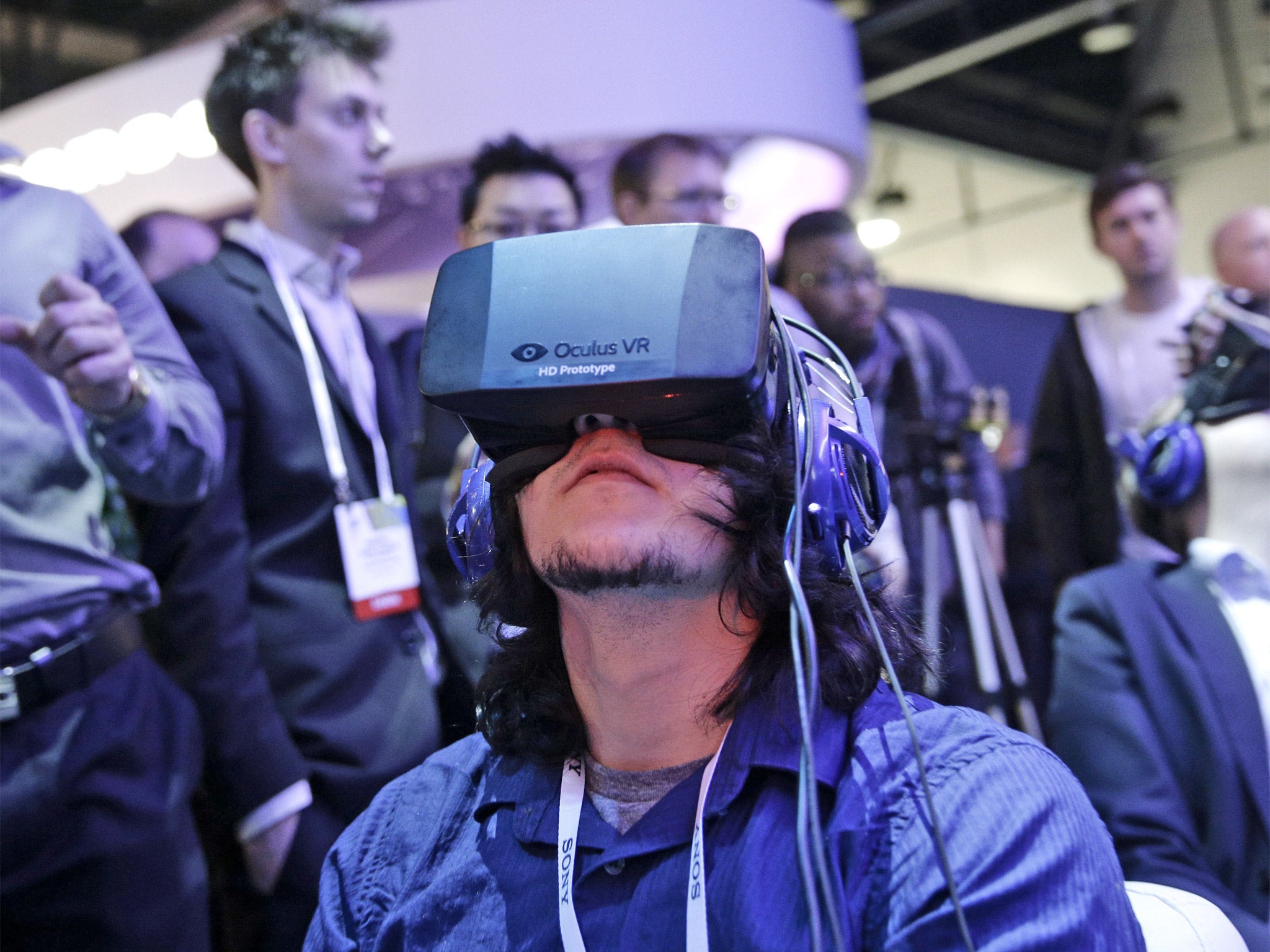Facebook looks to future with $2bn acquisition of Oculus Rift VR company

Now that Facebook has all but taken over this world, it is turning its attention to creating new ones. On Tuesday night, the Silicon Valley firm announced its purchase of the virtual reality gaming company Oculus VR for $2bn (£1.2bn). Although Oculus’s signature virtual reality headset, Rift, is yet to be made available to consumers, it is already considered a hit thanks to a successful 2012 Kickstarter campaign and a buzzed-about demo at the recent SXSW festival.
The Rift, which resembles a pair of blacked-out ski goggles, reportedly allows users to enter immersive, computer-generated 3D worlds far more convincing than any existing virtual reality hardware.
Mark Zuckerberg, head of Facebook, wrote in a post: “Mobile is the platform of today, and now we’re getting ready for the platforms of tomorrow… Oculus [could] create the most social platform ever, and change how we work, play and communicate.”
Virtual reality may finally be coming of age. Sony recently revealed a prototype for its own virtual reality gaming headset, Project Morpheus, which will work with the Playstation 4 console, while Microsoft is also believed to be developing a similar device for the Xbox.
Mr Zuckerberg said that while immersive gaming would remain Oculus VR’s initial goal, he imagined a far broader future for the technology. “After games, we’re going to make Oculus a platform for many other experiences,” he wrote. “Imagine enjoying a court-side seat at a game, studying in a classroom of students and teachers all over the world or consulting with a doctor face-to-face – just by putting on goggles in your home… One day, we believe this kind of immersive, augmented reality will become a part of daily life for billions of people.”
The acquisition gives Facebook a foothold in the hardware space occupied by Amazon and Google, which plans to release its own wearable device, Google Glass, in 2014. This week the search giant announced that it was partnering with the eyewear manufacturer Luxottica, owner of Oakley and Ray-Ban, to create fashionable designs for its high-tech specs.
Oculus VR was founded in 2012 in Irvine, California, by the 21-year-old Palmer Lucky. Its chief technology officer, John Carmack, created the classic games Doom and Quake. The Rift’s early development and production was crowd-funded via Kickstarter, which led to a pair of multimillion-dollar financing rounds. At the end of last year the company was valued at approximately $250m. Already, about 75,000 Rift developer’s kits have been sold to prospective game designers, for $350 each.
Not all gamers were equally enthusiastic. Markus Persson, who created the popular Minecraft, revealed on Twitter that he had cancelled a plan to develop a virtual reality version of that game for the Rift. “Facebook creeps me out,” he said.
Mr Persson, who invested in Oculus VR during its Kickstarter campaign, also wrote: “I did not chip in ten grand to see a first investment round to build value for a Facebook acquisition. I definitely want to be part of VR, but I will not work with Facebook.”
Join our commenting forum
Join thought-provoking conversations, follow other Independent readers and see their replies
Comments